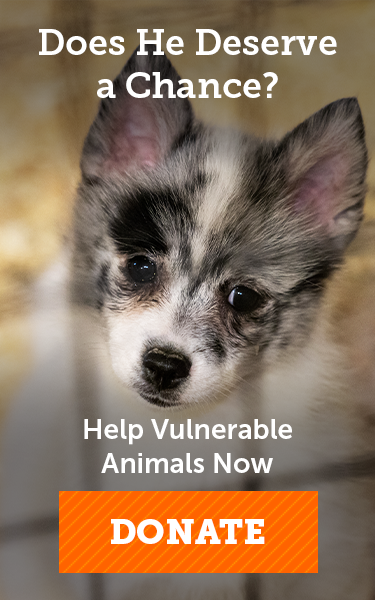ASPCA Welcomes Rhode Island Ban on Abusive Farm Animal Practices
Gov. Chafee signs bills prohibiting tail docking of cows, intensive crating of calves & pigsNEW YORK—The ASPCA® (The American Society for the Prevention of Cruelty to Animals®) today commended Rhode Island legislators and Gov. Lincoln Chafee for enacting two critical measures to protect farm animals in the state from abusive industry practices. The new laws ban the intensive, crated confinement of veal calves and female breeding pigs and prohibit the inhumane tail docking of cows.
"We thank Governor Chafee for protecting Rhode Island's animals from some of the worst factory farm abuses," said Debora Bresch, Esq., senior director of ASPCA Government Relations for the Eastern region. "Americans care about how farm animals are treated, and these inhumane practices are out of step with the values of Rhode Island's citizens."
S.2191/H.7180 prohibits two of the most egregious industrialized farming abuses: veal crates for calves and gestation crates for female breeding pigs. Veal calves and female breeding pigs on factory farms are often confined in crates so tiny that they are unable to lie down, stand up or turn around freely. Eight other states have already passed similar humane legislation, and 16 Rhode Island farms came forward in support of the state ban.
S.2192 prohibits the inhumane and unnecessary practice of "tail docking," involving the partial amputation—typically without pain killers—of up to two-thirds of a cow's tail. Despite claims from some in the dairy industry that tail docking is needed to help ensure cow cleanliness and udder health, the scientific evidence shows that tail docking creates no benefit to the cow or the quality of milk produced. Instead, the practice causes cows pain and distress and results in increased fly attacks. The American Veterinary Medical Association, the National Milk Producers Federation, and numerous dairy industry representatives are highly critical of the practice and oppose routine tail docking of dairy cows.
"These two new measures are a significant step toward improving the lives of farm animals in Rhode Island, who all too often endure lives of agony and frustration on factory farms," said Suzanne McMillan, director of the ASPCA farm animal welfare campaign. "All animals, including those raised for food, deserve to be treated humanely."
For more information on the ASPCA and to join the ASPCA Advocacy Brigade, please visit www.aspca.org.

